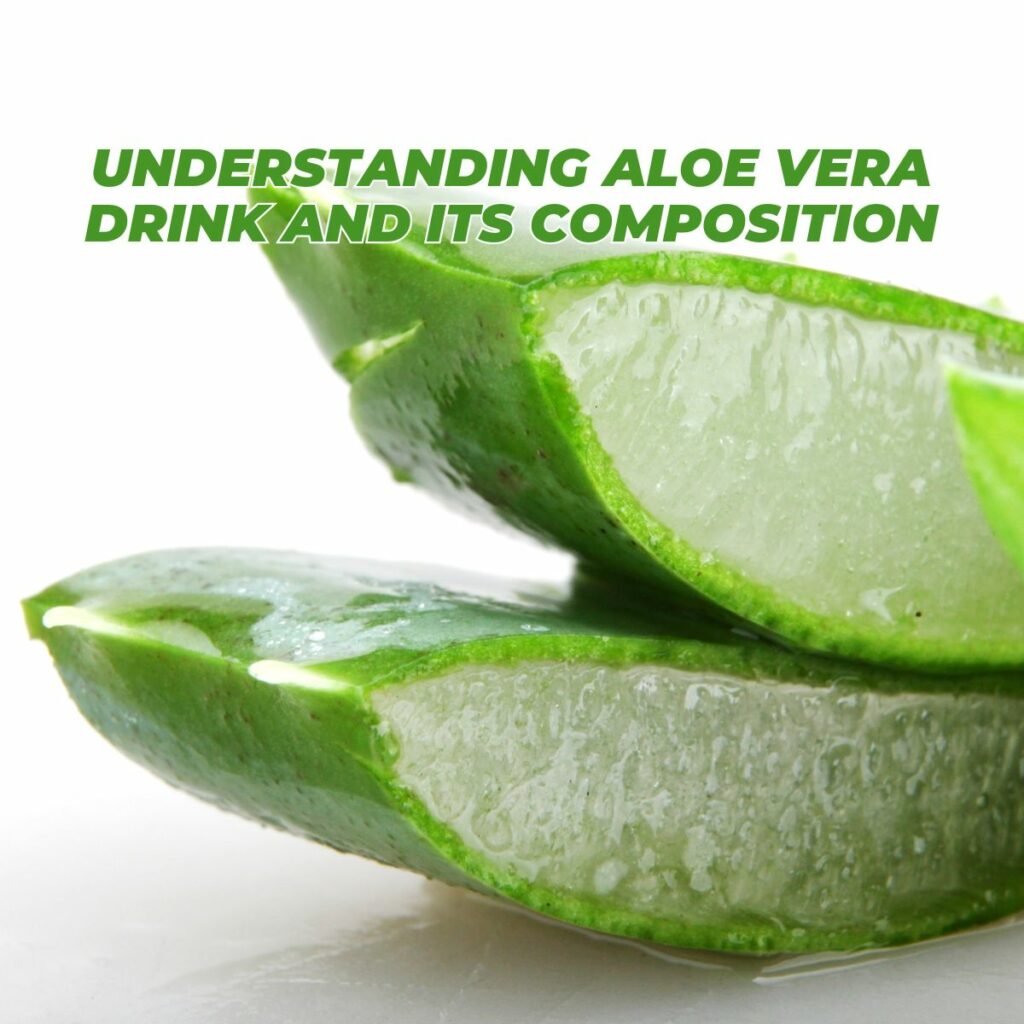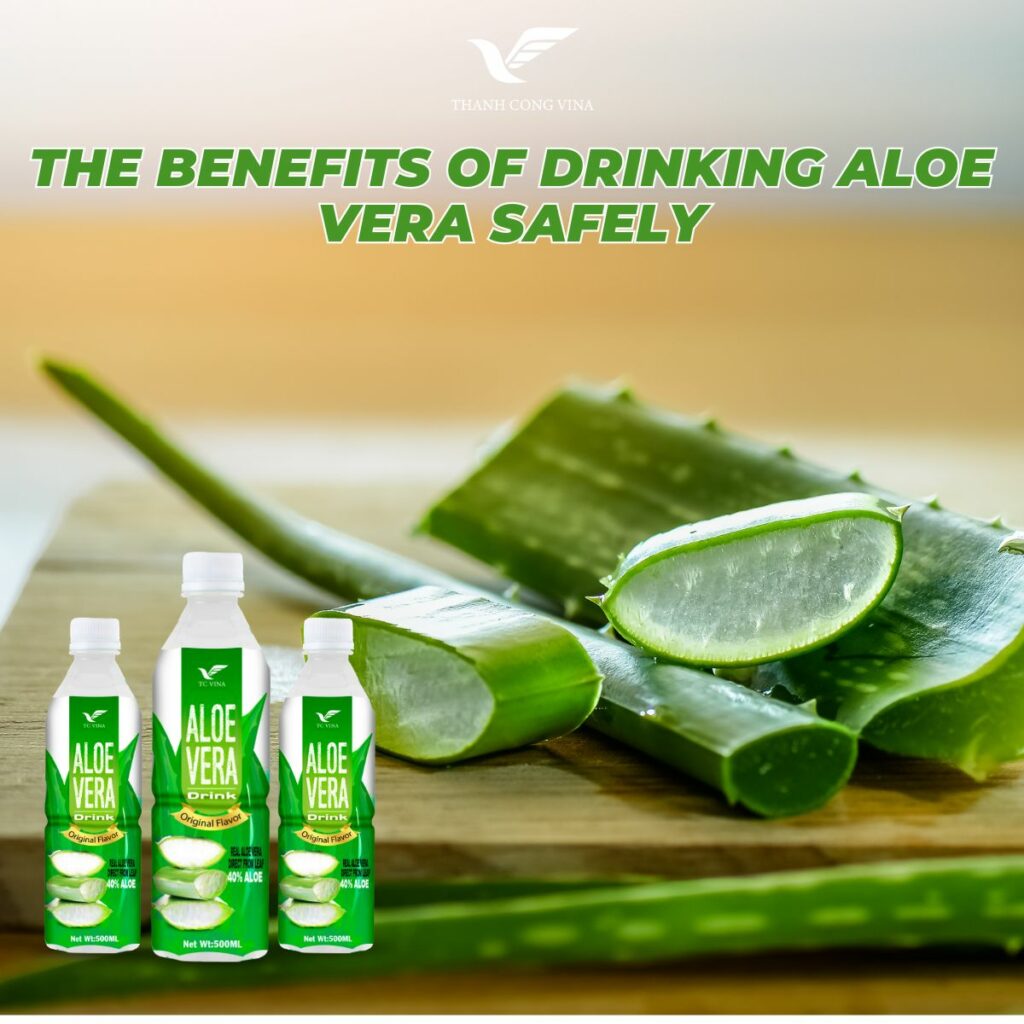Products Knowledge
Aloe Vera Drink Side Effects: What You Need to Know Before Drinking
Aloe vera has long been celebrated for its healing and hydrating benefits, often hailed as a “miracle plant.” Its juice and drinks are now popular worldwide for their ability to support digestion, boost skin health, and detoxify the body. However, while Aloe Vera Drink offers numerous health benefits, not everyone is aware that excessive or improper consumption may lead to unwanted side effects. From digestive discomfort to potential interactions with certain medications, it’s important to understand how to use aloe vera safely. This guide explores the possible side effects of Aloe Vera Drink, helping you make informed decisions about incorporating it into your daily routine. Whether you’re drinking it for better skin, weight loss, or gut health, understanding its potential downsides is essential to enjoy the benefits without risks. Let’s take a closer look at what you should know before drinking aloe vera juice regularly.
Table of Contents
Toggle1. Understanding Aloe Vera Drink and Its Composition

1.1 What Is an Aloe Vera Drink?
An Aloe Vera Drink is made from the gel extracted from aloe leaves, often mixed with water, natural flavors, or fruit juices. The gel is rich in bioactive compounds like vitamins A, C, and E, amino acids, and enzymes that support overall health.
1.2 Key Components That Affect the Body
Aloe contains anthraquinones—compounds responsible for its laxative properties. While they can aid digestion, excessive intake can irritate the intestines. Another component, aloin, found in the latex layer beneath the leaf skin, is known for its potent effects on the digestive system and should be removed during processing.
1.3 Why It’s Important to Choose Properly Processed Drinks
Not all aloe drinks are equal. Poorly processed or unpurified drinks may retain aloin or preservatives that can cause stomach discomfort, diarrhea, or electrolyte imbalances. Always choose certified and reputable brands that ensure quality and safety.
2. Common Aloe Vera Drink Side Effects You Should Know
2.1 Digestive Discomfort
The most common side effect of consuming too much Aloe Vera Drink is digestive irritation. The natural laxative properties of aloe can cause abdominal cramping, bloating, and diarrhea if consumed in large quantities.
2.2 Electrolyte Imbalance
Frequent diarrhea can lead to loss of potassium and other electrolytes, causing fatigue and muscle weakness. This makes moderation key, especially for people who drink aloe vera daily.
2.3 Allergic Reactions
Though rare, some individuals may experience allergic reactions such as itching, rash, or throat irritation. Those allergic to plants in the Liliaceae family (like garlic or onions) should be cautious.
2.4 Interaction with Medications
Aloe vera may affect the absorption or potency of certain medications, such as diuretics, diabetes drugs, and laxatives. If you’re on any medication, consult your doctor before adding aloe drinks to your diet.
3. Aloe Vera Latex: The Hidden Risk in Some Drinks

3.1 What Is Aloe Latex?
Aloe latex is the yellowish substance found beneath the leaf skin. It contains aloin, a compound known for strong laxative effects.
3.2 Health Risks of Aloe Latex
Unprocessed or homemade Aloe Vera Drinks that include latex can cause severe cramps, dehydration, or even kidney irritation. Over time, regular consumption may lead to chronic digestive issues.
3.3 Safe Alternatives and Aloin-Free Drinks
Look for drinks labeled “decolorized” or “aloin-free.” These are filtered to remove the latex and are much safer for long-term use. Reputable manufacturers, such as Thanh Cong Vina, ensure their aloe drinks are free of latex and aloin while preserving essential nutrients.
4. Long-Term Side Effects of Excessive Aloe Vera Consumption
4.1 Impact on Liver and Kidneys
Overconsumption of unprocessed aloe drinks can cause liver inflammation in sensitive individuals. Additionally, the loss of fluids and electrolytes from frequent laxative effects may strain the kidneys.
4.2 Nutrient Absorption Issues
Aloe’s cleansing properties may interfere with nutrient absorption when consumed excessively. Over-detoxing can reduce the absorption of essential vitamins and minerals.
4.3 Hormonal and Blood Sugar Changes
Some studies suggest aloe vera may lower blood sugar levels, which could be risky for people taking diabetic medication. Women who are pregnant or breastfeeding should also avoid unregulated aloe products due to possible uterine stimulation.
5. Who Should Avoid Aloe Vera Drink
5.1 Pregnant and Breastfeeding Women
Aloe vera may trigger uterine contractions, making it unsafe during pregnancy. Nursing mothers should also avoid it, as certain compounds can pass through breast milk.
5.2 People with Kidney or Heart Conditions
Due to aloe’s potential effect on potassium balance, individuals with kidney or heart issues should consume aloe vera only under medical advice.
5.3 Those with Sensitive Digestive Systems
People prone to IBS (Irritable Bowel Syndrome) or frequent diarrhea may find aloe drinks too harsh on their stomachs. Start with small amounts to test tolerance.
6. Safe Ways to Enjoy Aloe Vera Drink Side Effects

6.1 Start Slow
Begin with 50–100 ml per day to allow your body to adjust. Monitor how you feel before increasing the dosage.
6.2 Choose High-Quality, Purified Brands
Always buy aloe drinks from trusted companies that remove harmful compounds. For instance, Thanh Cong Vina offers aloe beverages made from fresh aloe pulp, purified, and tested to ensure safety and nutrient integrity.
6.3 Combine with Balanced Nutrition
Pair your Aloe Vera Drink with a balanced diet rich in fiber, fruits, and vegetables. This minimizes digestive stress and enhances the body’s natural detoxification process.
7. How to Identify Safe and Authentic Aloe Vera Drinks
7.1 Check the Ingredient Label
The label should list aloe vera gel or pulp as the main ingredient, with no mention of “aloe latex” or “aloin.” Avoid drinks with excessive added sugar or artificial flavors.
7.2 Look for Certification
Reputable aloe drinks often carry certifications like ISO, HACCP, or FDA approval. These indicate that the product has passed strict safety standards.
7.3 Storage and Packaging
Store your aloe drink in a cool, dry place. Avoid products with damaged seals or expired dates, as aloe can degrade over time, reducing its potency.
8. The Benefits of Drinking Aloe Vera Safely

8.1 Supports Healthy Digestion
When consumed correctly, Aloe Vera Drink promotes smooth digestion and relieves mild constipation.
8.2 Enhances Skin and Hydration
Aloe vera helps hydrate the skin from within, improving elasticity and glow.
8.3 Strengthens the Immune System
Its antioxidants and vitamins help combat free radicals, boosting overall immunity without harming the body when taken in moderation.
Conclusion
While Aloe Vera Drink offers powerful benefits for hydration, digestion, and detoxification, awareness of its potential side effects ensures safer and more effective use. Excessive or improperly processed aloe can lead to discomfort or health issues, but when consumed responsibly, it remains a valuable addition to your wellness routine.
For consumers seeking trusted and high-quality aloe beverages, Thanh Cong Vina stands out as a leader in natural drink production. Every TCVina Aloe Vera Drink is carefully formulated from purified aloe gel—free from latex, artificial additives, and unnecessary sugars. The brand’s commitment to quality and innovation guarantees that each sip delivers nature’s best without compromising safety. Enjoy the refreshing taste and health benefits of aloe with confidence, knowing you’re choosing a product crafted for your well-being and long-term vitality.

